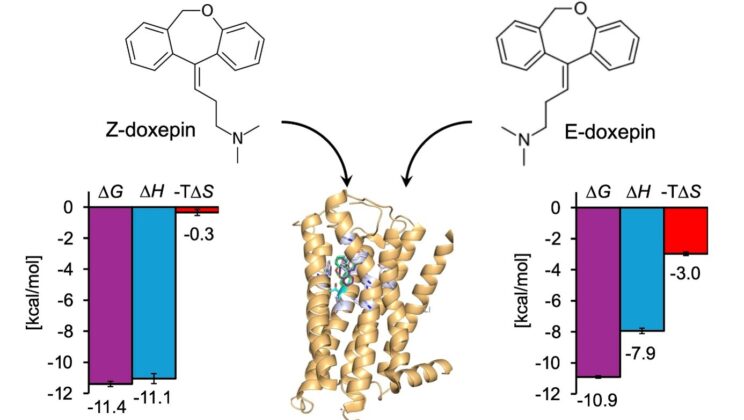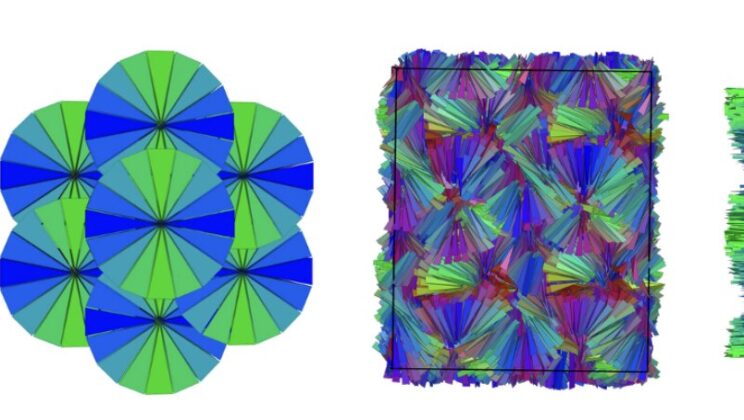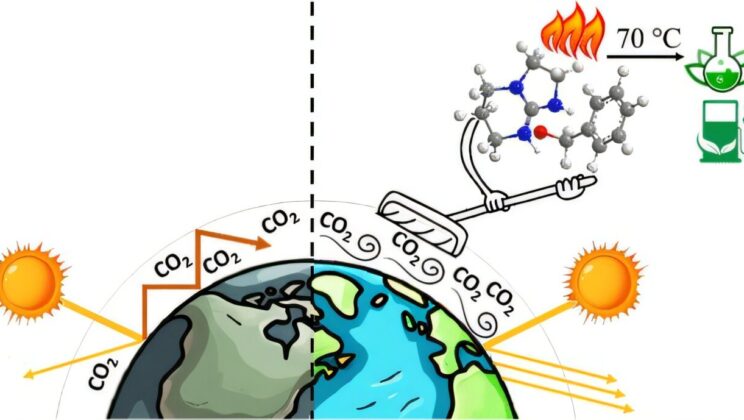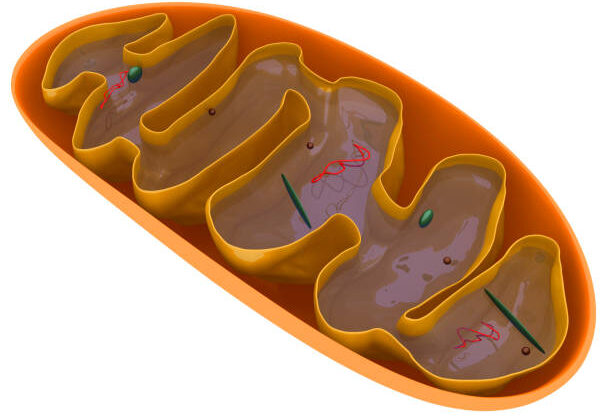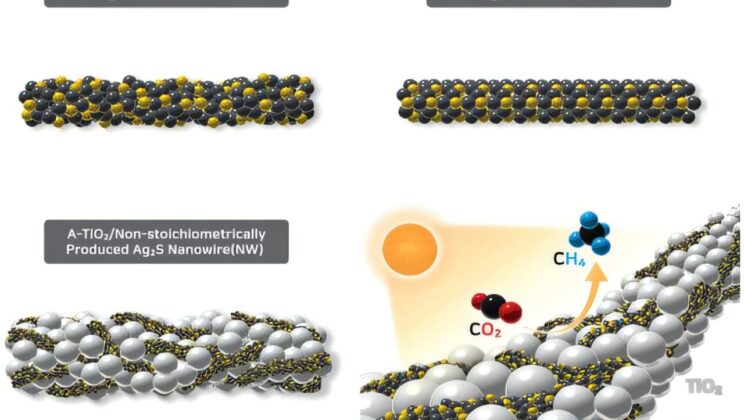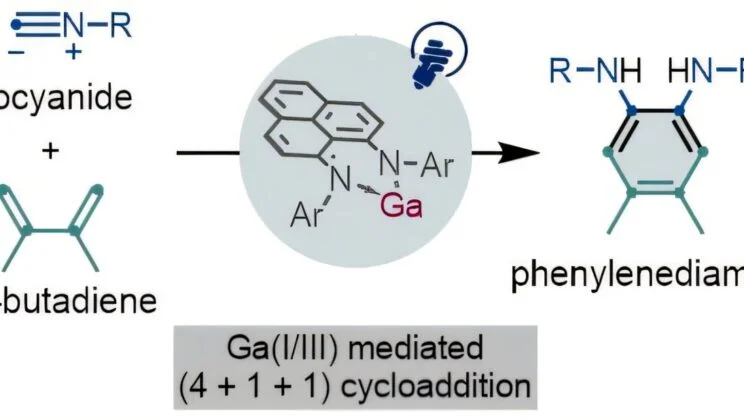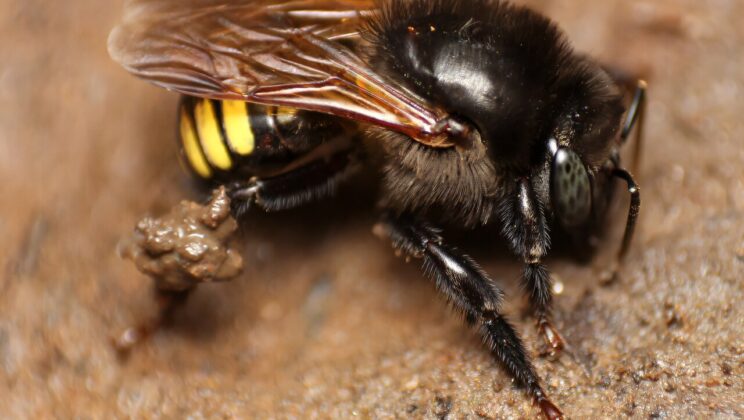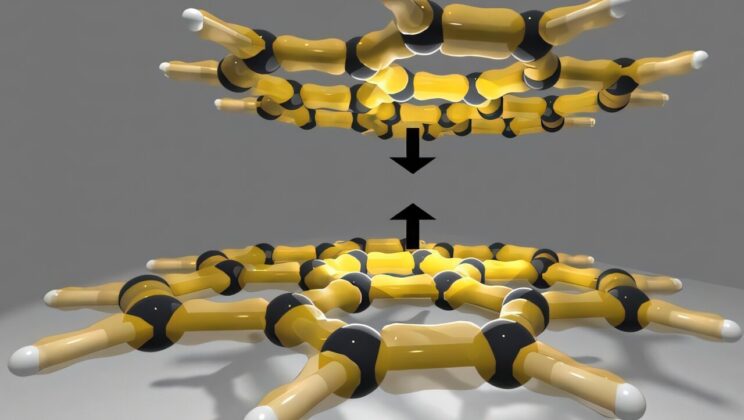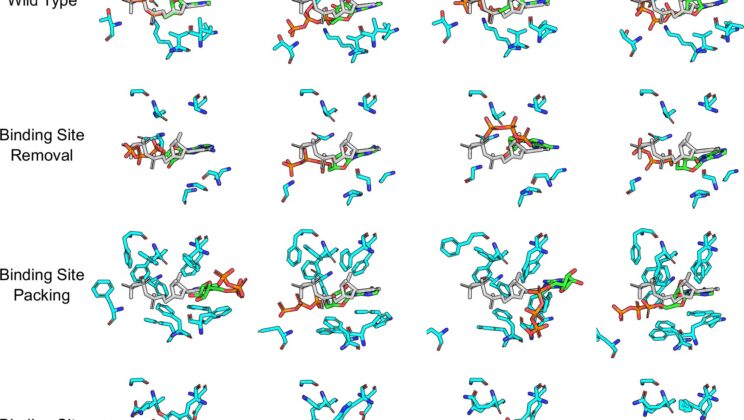Ammonia is everywhere—working quietly behind the scenes of agriculture, pharmaceuticals, and countless industrial processes. Yet despite its usefulness, it carries…
Category: Chemistry
This Tiny Molecular Sentinel Inside Your Cells Decides How Your Body Heals
Deep within the surface of nearly every human cell lies a vast communication network—tiny molecular sentinels constantly listening, responding, and…
Scientists Discovered That Chaos Can Turn Into Perfect Order With Only One Rule
At first glance, the idea feels almost magical. Take particles with no charge, no chemical attraction, no instructions to stick…
Scientists Discover That Just Three Water Molecules Can Flip a Molecule’s Structure
At first glance, prolinol looks like a modest character in the vast world of chemistry. It is small, flexible, and…
Scientists Successfully Created Cage-Shaped Molecules That Shouldn’t Exist
For more than a century, organic chemistry has lived by a thick, trusted rulebook. These rules explain how atoms link…
This New Artificial Jelly Can Feel Pain Just Like a Living Creature
Pain is not loud, yet it speaks first. Long before a burn scars the skin or a cut draws blood,…
This Self-Healing Orange Crystal Actually Repairs Itself in the Deep Freeze of Space
At temperatures so low that motion nearly disappears, where most materials stiffen and surrender to brittleness, something quietly extraordinary happens.…
The 100-Year-Old Chemical Secret That Just Got a Sunlight-Powered Makeover
Ammonia is everywhere and almost nowhere at the same time. It is colorless, easy to miss, and yet deeply woven…
This New Compound “Exhales” Captured Carbon at Just 70°C
In a chemistry department in Helsinki, something ordinary and invisible became the focus of a long, patient experiment. The air…
The “Leak” in Your Cells: Scientists Discover Why Some Calories Just Disappear
Deep inside every living cell, tiny engines hum away, turning the food we eat into the energy that keeps us…
This New Catalyst Turns Carbon Dioxide Into Methane Using Only Sunlight
On a quiet morning at the DGIST campus, a team of scientists peered through microscopes and computer simulations, chasing a…
Scientists Turn Greasy Waste Cooking Oil Into Super-Strong Plastic That Can Pull a Car
In kitchens across the world, gallons of waste cooking oil quietly disappear down drains or gather in dusty bottles, a…
Scientists Discover How Gallium Could Replace Expensive Metals in Life-Saving Chemical Reactions
Imagine a world where the essential catalysts that drive life-changing chemical reactions—like those used to create fertilizers, pharmaceuticals, and energy—don’t…
The Secret to Brighter, Smarter Solar Cells Lies in a Tiny Atomic Twist
It all starts with a twist—a subtle, almost imperceptible shift in the atomic layers of a material. But for scientists…
Scientists Uncover Surprising Discovery in Gas Separation That Could Revolutionize Clean Energy
When most people think of gas separation, they imagine a process of capturing what’s needed while leaving the rest behind.…
Scientists Turn Bee Honey and Cocoa Waste Into a Gourmet, Eco-Friendly Super Ingredient
In a quiet laboratory in São Paulo, a team of researchers watched an unlikely fusion take shape: native bee honey…
Scientists Turn Methane Into Medicine for the First Time — And It Could Change Everything
Natural gas has always been a quiet giant of the energy world. It burns in power plants and home stoves,…
Scientists Create Membranes That Can “Think,” Separating Molecules by Chemistry Instead of Size
Ultrafiltration has long been one of the quiet engines of modern industry — silently purifying medicines, refining chemicals, and enabling…
Scientists Create Self-Cleaning Menstrual Cup That Could End Boiling Forever
For centuries, menstrual care has been defined by convenience, necessity, and stigma. In recent years, however, a growing movement toward…
Scientists Crack a 50-Year Chemistry Mystery — and It Could Change How We Design Future Materials
For decades, one of the most persistent mysteries in theoretical chemistry has been how to accurately describe the faint yet…
AI Was Supposed to Design New Drugs — A New Study Just Exposed a Fatal Flaw
Artificial intelligence has transformed the landscape of biomedical research. In just a few years, machine learning models have done what…
Scientists Build First “X-Ray” of RNA Droplets — Could This Crack the Code of ALS and Cancer?
Inside every living cell, there is no stillness. Molecules ricochet and fold and collide; proteins twist into working shapes, RNAs…

